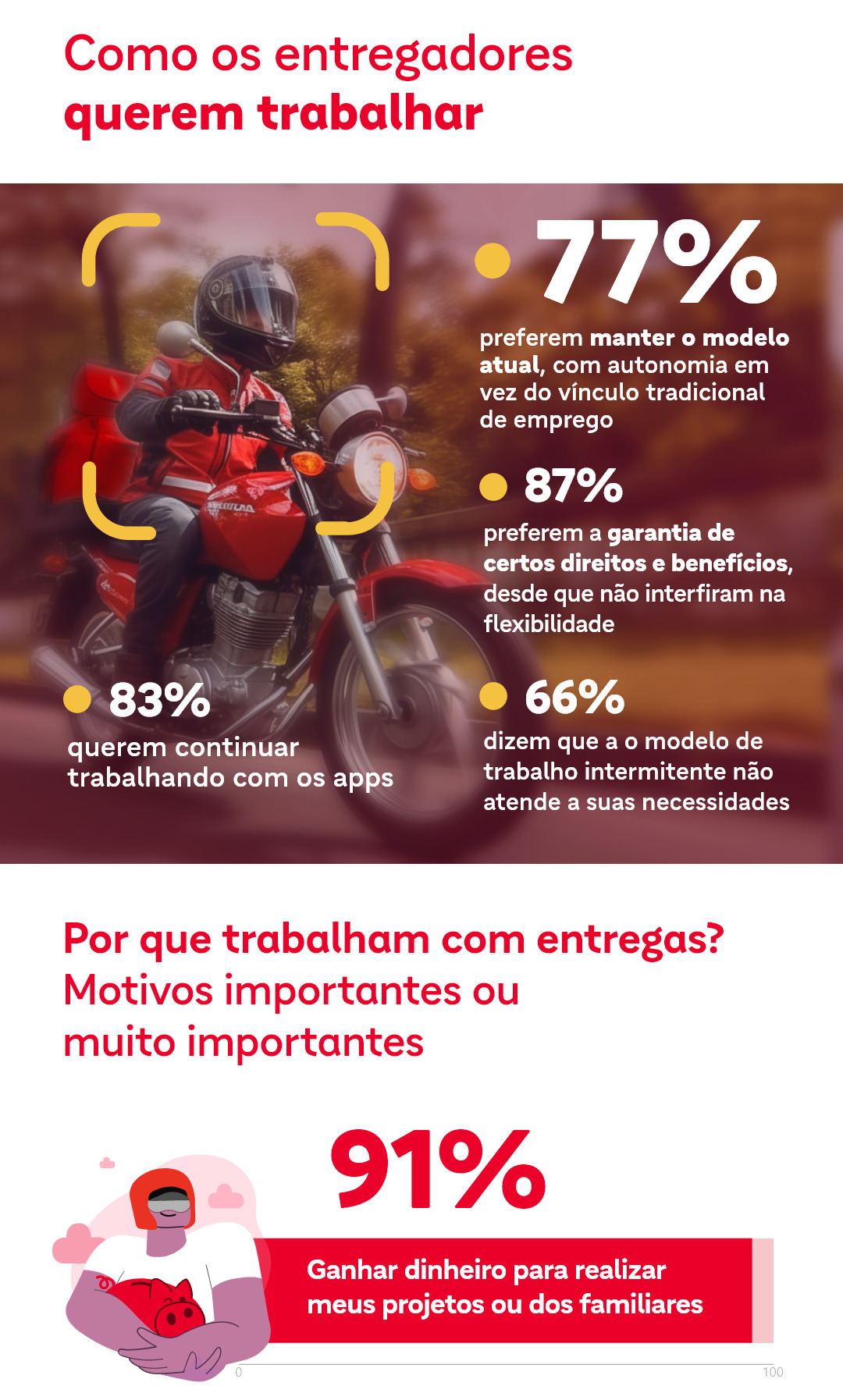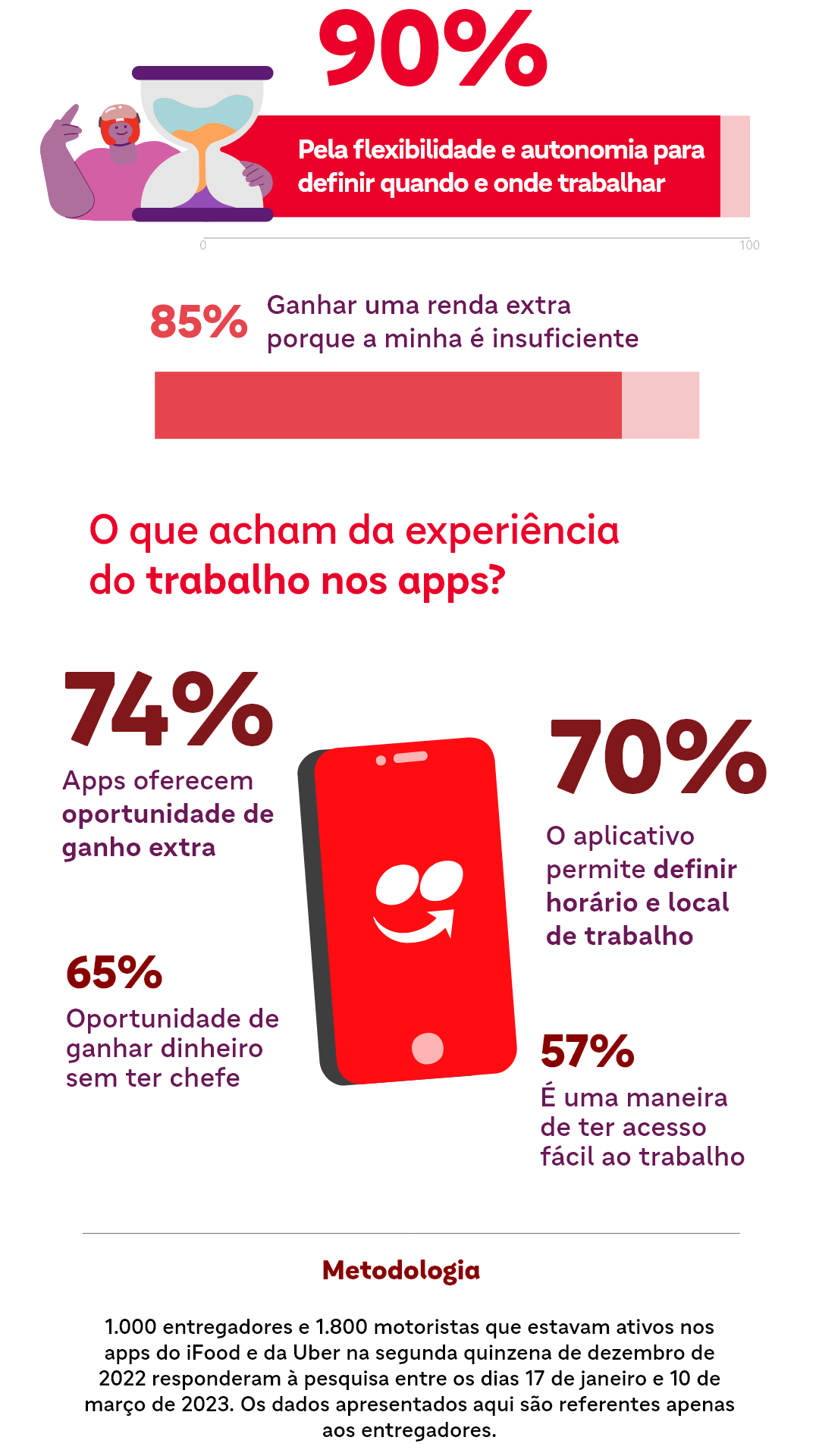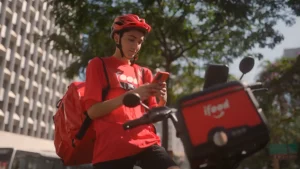Earning money to fulfill your life projects (or those of your family) in a flexible job, with autonomy to define when and where to work are the biggest reasons that lead Brazilian men and women to make deliveries through apps.
This is one of the data revealed by the “Future of Work by Application” research, carried out by Datafolha at the request of iFood and Uber. The survey interviewed 1,000 delivery people and 1,800 drivers active on both platforms between January and March 2023.
When asked why they make deliveries, survey participants listed flexibility and autonomy (90%) and the possibility of earning money to carry out projects such as going to college, buying a house or paying for their children's college education as important or very important reasons (90%). 91%).
“Flexibility attracts both those looking for extra income and those who work with delivery as their main occupation, but want to fit this into their rhythm of life and have other activities, such as studying, says Debora Gershon, head of iFood public policies.


Other 85% also pointed out the need to earn extra income because they consider that what they receive per month from another activity is not enough.
For delivery drivers, working with apps is an opportunity to earn extra income (74% response from survey participants) and to be able to define working hours and locations (70%). More than half (57%) also pointed out that it is a way to have easy access to work.
Do delivery people want to be CLT?
When asked about their work situation, 77% of the delivery drivers said they prefer to maintain the current model, in which they have autonomy to choose schedules (but without access to the labor benefits provided for in the CLT for employees).
Other data from the survey shows that 87% think it is necessary to guarantee certain rights and benefits, as long as this does not interfere with flexibility (that is, they can continue working when, how and with which platform they want). “People want absolute freedom to manage their time. This should be a starting point to discuss improvements in the relationship”, says Debora.
Datafolha also called into question intermittent work, which is a type of employment contract with a formal contract (CLT) that facilitates the provision of services on a non-constant basis.
In this case, workers have an employment relationship with the company even if they are not called to work on certain days or times. In the survey, 66% of the delivery drivers responded that this model does not suit their needs.
“Intermittent work is flexible, but it does not give workers the freedom to accept or refuse work at any time”, adds Debora. “The employer needs to be notified of the refusal in advance.”
Finally, 83% said they want to continue working with delivery apps. “This data supports the rest of the research, which indicates that this work model has been taking into account the needs of these workers. Their fight is for more social protection, and not for a change in the relationship with digital platforms”, says Debora.


